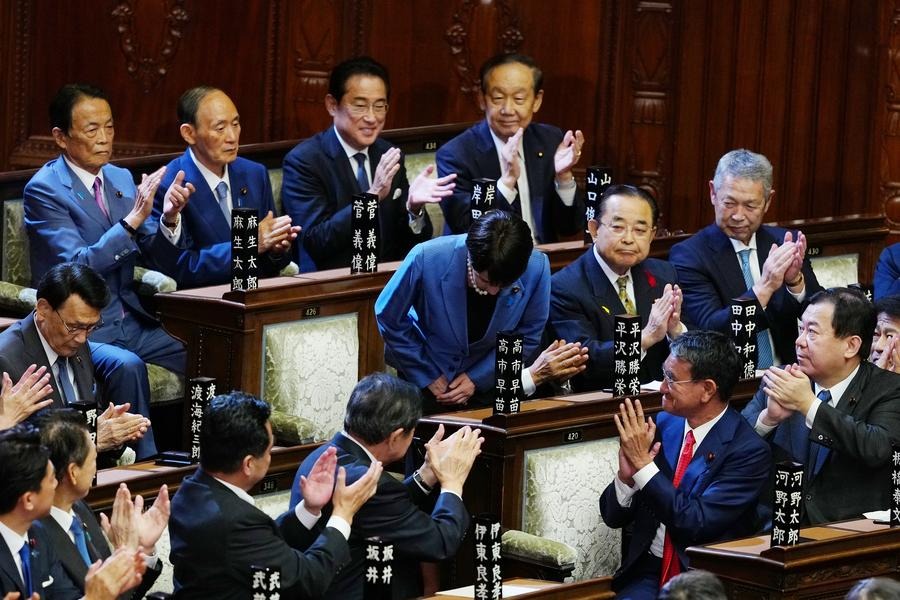Need to build long-term epidemic resilience


Last October, the 2019 Global Health Security Report included a stark warning: "National health security is fundamentally weak around the world. No country is fully prepared for epidemics or pandemics, and every country has important gaps to address." Just a couple of months later, a new coronavirus quickly demonstrated the accuracy of the report's assessment.
The local authorities in Wuhan in the early weeks seem to have been slow in realizing the serious of the outbreak, failing to comprehend the virus's speed of transmission, a problem compounded by the delay in informing the public about the outbreak.
It was not until Jan 20 that the government acted, after another doctor, Zhong Nanshan-a hero in China's fight against the 2003 outbreak of another coronavirus, severe acute respiratory syndrome-alerted the public to the seriousness of the new virus.
The Chinese government subsequently mobilized more than 200 medical teams from around the country, including from the military, to help contain the disease. It also built two new hospitals, and 17 temporary hospitals, with unprecedented speed. And it gave provincial, municipal and county-level governments strict instructions on improving public hygiene, isolating possible victims, and sharing experience and expertise.
China's unprecedented response appears to have slowed the spread of the disease domestically. But as of Feb 25, the World Health Organization reports more than 85,000 cases in 33 countries, and nearly 3,000 deaths. Hubei has accounted for the most cases, and the fatalities.
The Republic of Korea is now second to China for the number of infections, with 3,736 confirmed cases (as of Sunday). The government has placed the country on the highest possible alert-a move that allows for lockdowns and other containment measures. The southeastern ROK city of Daegu, where cases are concentrated, has essentially been under a state of emergency. Japan has 955 cases by Sunday, including 705 from a single cruise ship.
Economic toll of epidemic serious
The virus is also gaining ground in Europe, with 1,694 cases confirmed in Italy (by Sunday). The country has now quarantined more than 50,000 people. Even Iran is facing an uptick in infections. Hopes that a pandemic can be averted are dwindling fast. All of this is taking a serious economic toll, as global supply chains are disrupted and services halted.
Moreover, Japan's economy-already under pressure from another consumption-tax hike and the fallout from Typhoon Hagibis-seems likely to contract even further. In the ROK, a key hub in global supply chains, Samsung Electronics has suspended smartphone plant operations in Gumi after an employee tested positive for the virus.
After Apple warned that its quarterly revenue will take a hit, owing to slowed iPhone production and the temporary closure of Apple stores in China, global investors are getting nervous. In the United States, the S&P 500 dropped nearly 3 percent at the start of trading on Feb 24.
With the outbreak still escalating, the global damage will run deeper than supply-chain disruptions. The sudden reduction in production and services is driving a shift in consumption patterns and business operations in China toward e-commerce and tele-commuting-a trend that may be mirrored in other affected countries as the virus spreads.
The economic effects of this shift-including changes in Chinese demand for travel, tourism services, and luxury goods-will reverberate globally for months to come. But the more profound effect of the outbreak is on Chinese social dynamics.
An unprecedented number of Chinese, up to half of the population, are in full or semi-self quarantine for more than a month, with time to reflect on the disease's consequences for life, family and society. However difficult the lockdown has been, they have been able to count on their government to deliver power, water and online services reliably.
The epidemic has shaken the belief that economic prosperity can compensate for social well-being. A death in one-child households terminates the whole generational lineage, something unprecedented in Chinese family history. As a result, the Chinese people may reorient themselves toward health, home and family, after years of rising travel and offline consumption.
Damage control, massive re-orientation of priorities
The global media frenzy, some tinged with coronavirus-fueled xenophobia, could reinforce China's self-reflection and self-strengthening impulses, particularly in sorting out domestic public health, social security and governance issues. Already, the outbreak has led to swift domestic damage control and a massive re-orientation of priorities, such as innovative ways of dealing with business cash flows, survival of small and medium-sized enterprises, job disruptions, and restoring key supply chains.
But even when the virus is contained, escalating geopolitical rivalries, technological disruption, climate change and the likelihood of new pandemics will still loom large. So, beyond tackling the current crisis, the Chinese government should work on long-term resilience-building reforms in education, healthcare, the social safety net and internal feedback mechanisms. The public expects no less.
The same is true worldwide. At a time of unprecedented global interconnectedness, our biggest challenges are shared. Every country must work to build its resilience, or no one will be safe.
Andrew Sheng is a distinguished fellow at the Asia Global Institute at the University of Hong Kong and a member of the UNEP Advisory Council on Sustainable Finance. And Xiao Geng, president of the Hong Kong Institution for International Finance, is a professor at and director of the Research Institute of Maritime Silk-Road at Peking University HSBC Business School.
Project Syndicate
The views don't necessarily represent those of China Daily.


































